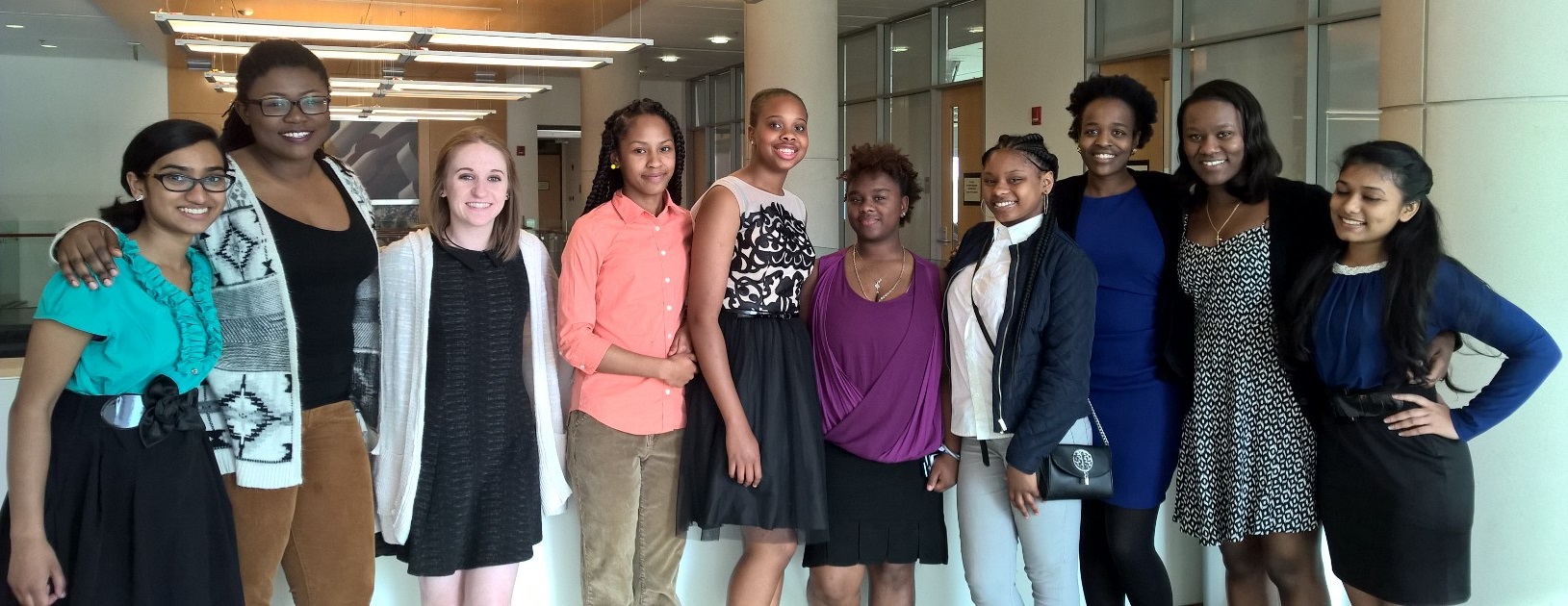As a freshman Sondheim Scholar living in UMBC’s service-focused Shriver Living-Learning Community, Isabel Geisler had big plans. Geisler ’17, global studies, wanted to create a support program for local high school girls in STEM, and after two years of intensive research, planning, and partnership-building, she launched a pilot in 2015-16, all to prepare for the program’s official kick-off this year. Today, Geisler’s Reach Initiative includes 20 mentors serving 20 mentees, with a robust program structure to manage everything from fundraising to evaluating efficacy.
The Reach Initiative has three pillars: mentorship, research, and empowerment. Geisler observes that despite evidence of ongoing gender inequality, Americans often don’t like to admit that gender bias remains a major issue. She suggests that this can leave women unprepared to deal with discrimination, particularly in male-dominated areas like STEM. By “tackling these challenges head on” and giving young women training and information, she hopes to positively influence their education and career paths.
In their first semester of the year-long program, participating teens meet weekly with their mentors on campus, to “make them feel like they belong here,” at a major research university, says Geisler. Workshops teach the girls ways to advocate for themselves and respond to harassment. They also address core aspects of the college application process, like taking standardized tests and completing financial aid paperwork. Guest speakers, including current students in UMBC’s scholars programs, help the high schoolers imagine what their futures could look like.
In the second semester, participants tackle service-oriented independent research projects. Just like professional scientists, participants must create a project proposal and budget before getting to work. Geisler says at least half of the initiative’s overall budget funds the students’ research. A new grant the American Association of University Women just awarded to the Reach Initiative will primarily support these projects.
The initiative has partnered with a number of schools in Baltimore City, including Green Street Academy, Digital Harbor High School, Baltimore Leadership School for Young Women, and Patterson High School to recruit participants.
As Geisler prepares to graduate from UMBC this May and likely head to a Ph.D. program in sociology, she is taking steps to make sure the program is well-situated to continue after her departure. One group of initiative volunteers is already seeking approval to complete a long-term study of the girls’ success and retention rates in STEM, with an eye toward the future and a sense of long-term commitment.
Banner image: Students in the 2015-16 Reach Initiative pilot cohort. Photo provided by Isabel Geisler ’17.
Tags: Baltimore City, CAHSS, GlobalStudies, GWST, ShriverCenter, SondheimScholars

